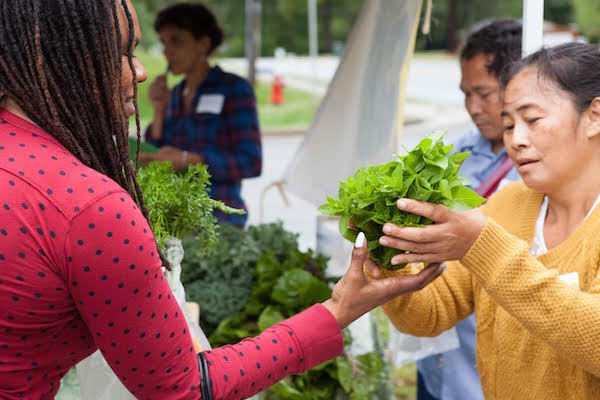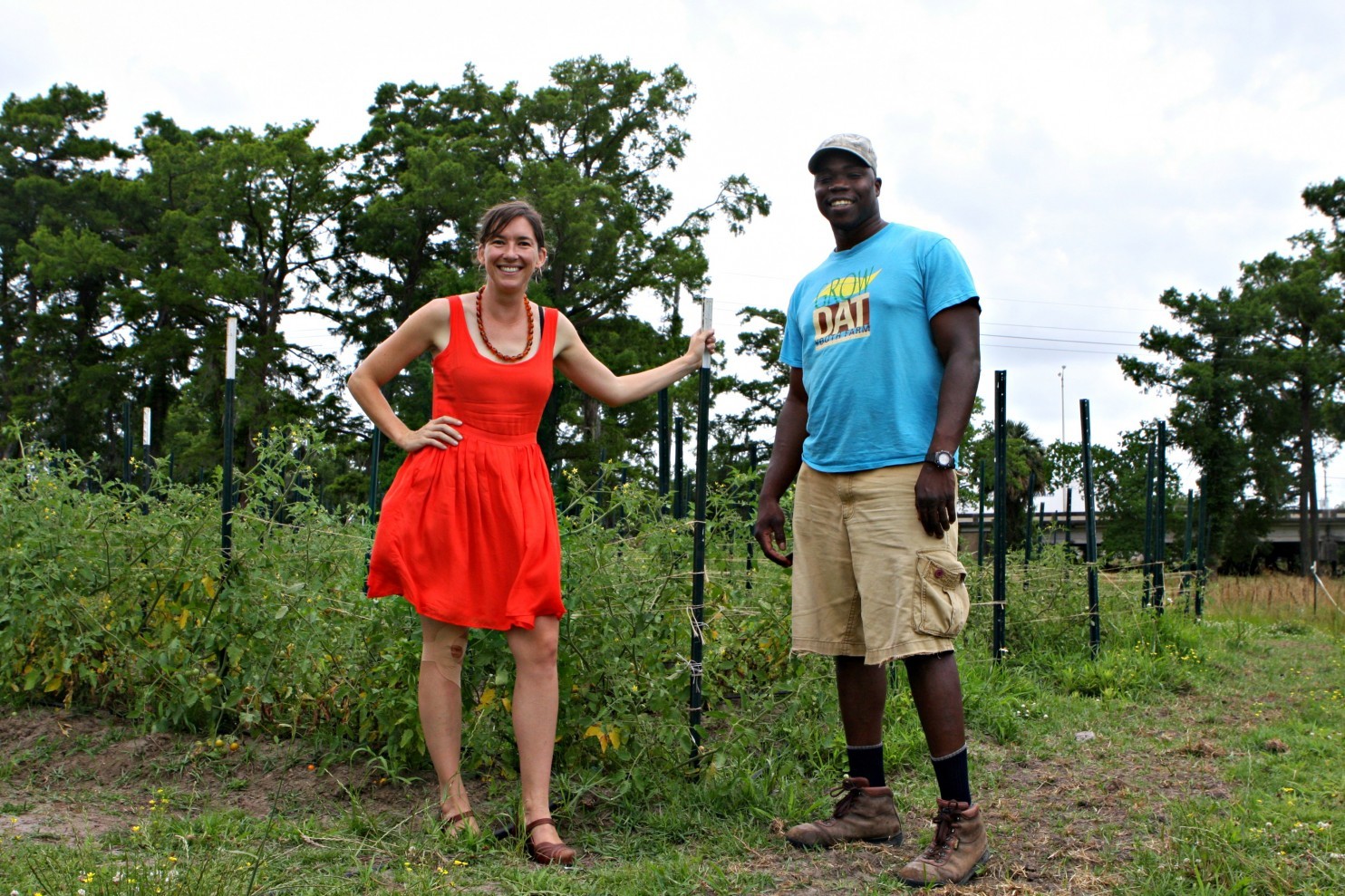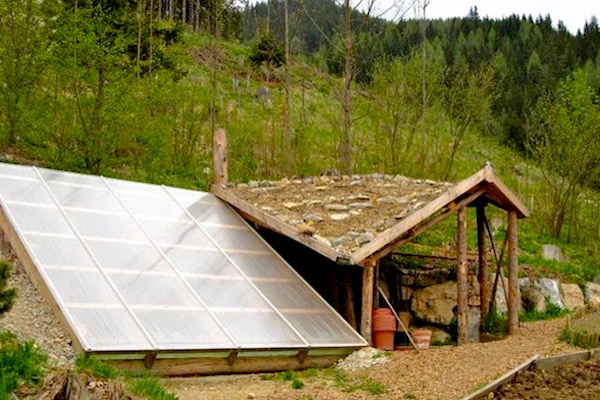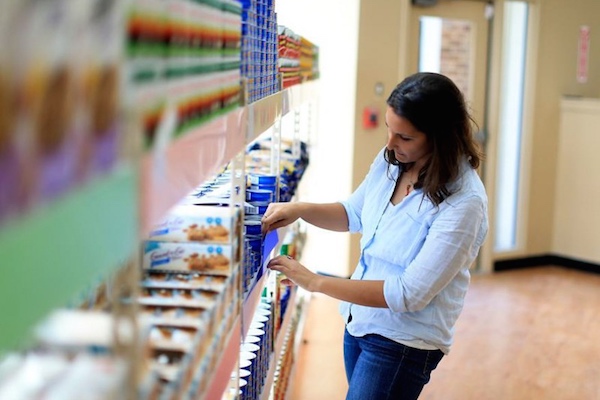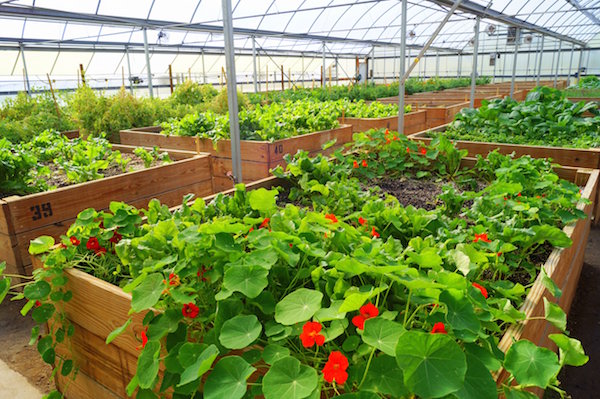Peak stuff. Minimalism. De-cluttering. The life-changing magic of tidying up. Our cultural keywords of the moment seem to suggest the appearance of something in the current zeitgeist that has us obsessed with thinking about all the stuff we have and why we have it. Here’s 5 ways to de-clutter that are actually going to change the world we live in by de-cluttering the planet and our homes.
Continue reading... →“Rough” and “unhealthy” are the words Tim Dubuclet uses to describe his childhood. Raised in inner-city New Orleans, he and his friends would wander the city’s violent streets after school, living on a diet of fast food and soda. By the time he was 17, Dubuclet weighed more than 300 pounds. But he dramatically transformed his lifestyle during a program with Grow Dat Youth Farm, where students are paid to grow fresh produce. There, he started focusing on his diet. He spent two days each week working in the garden, growing and weeding the radishes, chard and other vegetables he had never heard of before. He felt empowered cooking these new healthful foods, and lost 80 pounds. “At the farm, people came to talk to us about health, opening our eyes to the dangers of things like sugary drinks,” said Dubuclet, now 20. “I started eating healthier, growing my own food. I realized there was so much more to life than what I was doing with myself.” In 2013, Grow Dat found most of its incoming students living unwholesome lifestyles, with only 12 percent who reported eating vegetables in the previous 24 hours. Some, like Dubuclet, came from poor neighborhoods, or […]
Continue reading... →This $300 DIY underground greenhouse is ideal for gardening in colder climates by collecting the sun’s rays and earth’s heat to grow food year round. From vertical farms to solar-powered “farms from a box,” we’ve seen how farming technology has grown leaps and bounds in recent years. But for those who prefer something a little more rustic, growing food from a hole in the ground is as low-tech as you can get. A walipini, meaning “place of warmth” from the Amaraya Indian language, is an underground greenhouse with a transparent (usually plastic) covering that stays warm by passively soaking up the sun’s heat and absorbing the earth’s thermal energy. Fruits and vegetables can be grown year-round, making it ideal for communities in colder locations that can’t usually grow their own fresh and local produce during certain parts of the year. The farming method isn’t exactly new. Walipinis have been used in South and Central America for decades, including one that can grow bananas at 14,000 feet in the Andes. The technique was notably adopted by The Benson Institute, a worldwide food security program of the Mormon church. According to The Plaid Zebra, the Benson Institute and its team of volunteers built a community-sized 74-feet-by-20-feet walipini […]
Continue reading... →The U.N. Sent 3 Foreign Women To The U.S. To Assess Gender Equality. They Were Horrified. A delegation of human rights experts from Poland, the United Kingdom and Costa Rica spent 10 days this month touring the United States so they can prepare a report on the nation’s overall treatment of women. Human rights experts Eleonora Zielinska (Poland), Alda Facio (Costa Rica), and Frances Raday (U.K.), visited the United States in December to assess gender equality. The three women, who lead a United Nations working group on discrimination against women, visited Alabama, Texas and Oregon to evaluate a wide range of U.S. policies and attitudes, as well as school, health and prison systems. The delegates were appalled by the lack of gender equality in America. They found the U.S. to be lagging far behind international human rights standards in a number of areas, including its 23 percent gender pay gap, maternity leave, affordable child care and the treatment of female migrants in detention centers. While the U.N. delegates were shocked by many things they saw in the U.S., perhaps the biggest surprise of their trip, they said, was learning that women in the country don’t seem to know what they’re missing. The most […]
Continue reading... →Consider starting a new Black Friday tradition by visiting a state park. Forget the stampedes at the mall. Forget the sidewalk sales. Forget the shopping bags and gift receipts. This Black Friday, which falls on November 27, some states are encouraging folks to get reacquainted with nature by offering free admission to all the state parks within their borders. If you live or will be traveling in California or Minnesota for the Thanksgiving holiday, consider starting a new Black Friday tradition by visiting a state park – without paying an entrance fee. California leads the move, citing Seattle-based outdoor retailer REI with inspiring its move to waive the admission fees at 49 state parks for one day only, provided you print out your own Save the Redwoods pass. Black Friday – also known in the United States as the day immediately following Thanksgiving – is a commercial holiday of sorts which began with a marketing campaign by American Express in 2010. Now, the day is synonymous with holiday sales and stores filled with stuffing-stuffed shoppers. REI won attention from the media last month when the retailer, which has 143 stores nationwide, announced it would not open its doors on Black […]
Continue reading... →Millennial women are set to take on unprecedented leadership positions. Here’s how to prep for them. Coming of age for working women in the “lean-in” era isn’t easy. For millennial women (those born between 1980 and 1994), life and work are blended. The same technology that makes staying connected so easy makes staying “on” after working hours easy as well. Meanwhile, businesses expect more work for less pay, and parenting challenges are leading many women to take more time off work. That helps explain why 34% of millennial women say they aren’t interested in becoming a boss or top manager, according to a Pew Research Center study. Like their male counterparts, millennial women place a higher value on security and flexibility than on pay. But that doesn’t mean they’re satisfied with their working lives. In fact, 75% of millennial women say gender inequality in the workplace is an issue that needs addressing, compared with just 57% of millennial men. Here’s a look at some of those obstacles and what millennial women can do to get past them. No Shortage of Hurdles Despite the presence of several high-profile women at the national level, women hold only 4.6% (or exactly 23) of […]
Continue reading... →
